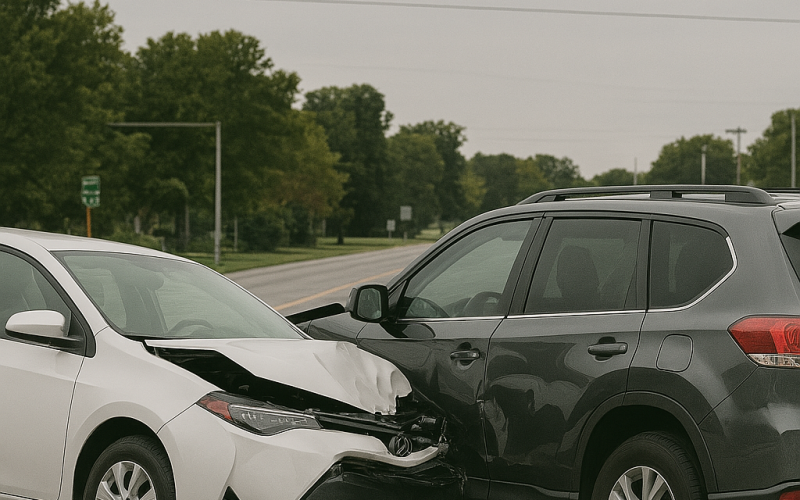Do You Have to Pay Taxes on a Personal Injury Settlement?



After suffering an injury in a serious South Carolina accident, you are probably worried about getting the maximum settlement for your claim. You should not have to pay out of pocket for something the at-fault party did.
However, getting fair compensation is only part of your concerns. You also need to know whether you must pay taxes on your personal injury settlement or what you will need to claim on your tax return. In most cases, you will not have to pay taxes for most of your compensation, but there are exceptions where some tax may be due.
Your South Carolina personal injury lawyer can help you determine the compensation you are owed and give you an idea of what kind of tax implications you should expect once you have received payment. If you have any questions or need help filing your personal injury claim, do not hesitate to call the HawkLaw, P.A. law firm at 888.HAWK.LAW or complete the online contact form. Our team is happy to provide a free consultation* and discuss the different courses of action you can take.

What Damages Can I Collect in a South Carolina Personal Injury Case?
If you are injured in an accident in South Carolina, you can pursue and collect both economic and non-economic damages. Between the two types of damages, this should help cover the costs associated with your injuries and any losses, including pain and suffering.
Economic
Serious injuries often result in massive expenses you would not have incurred without an accident. These expenses mean there will be substantial dollar amounts you will have to pay out, which you will need to consider when it comes to tax time.
Damages associated with medical expenses and care are considered actual losses. Expenses falling under this umbrella include medical bills, rehabilitation expenses, medications, lost wages, loss of income and earning capacity, funeral costs, property damage, and other costs you will likely have had to pay.
Non-Economic
Non-economic damages are different. These damages are intangible losses calculated by monetizing the value of the victim’s pain and suffering. Damages under the non-economic umbrella include pain, suffering, physical impairment, disfigurement, emotional , loss of consortium, injury to reputation, mental anguish, and humiliation, to name a few examples. Your attorney can determine if you suffer from other non-economic damages.
Since there is a good chance you may be eligible to pursue both economic and non-economic damages, you should understand the related income tax burdens and implications.
Are Personal Injury Settlements Taxable in South Carolina?

When an accident leaves you hurt, your compensation should cover the costs of your losses, which you would not have suffered if the at-fault party had done their duty to be careful. The intention of the money is to make up for something taken from you by someone else’s negligence. So why should you have to pay taxes on it? At the federal level, you do not.
Most of the money you receive from your accident settlement is not taxable under South Carolina tax code law. However, there are exceptions where you must pay tax on the money you receive as a settlement award. Under the Internal Revenue Service’s IRC 104, any income you collect from damages or settlements may be excluded from taxable income.
At the state level, the question of whether you have to pay taxes on an injury settlement becomes less clear. The answer depends on the types of damage for which you receive compensation. Some types of non-compensatory awards are taxable. It is advisable to obtain legal representation to help you understand your legal requirements and weigh your options.
The South Carolina personal injury lawyers at HawkLaw can provide resources to help you understand how any taxability of personal injury settlement amount might apply to you.
What Portions of My Personal Injury Settlement Are Exempt From Taxes?
Unfortunately, the IRS will enforce tax liabilities in personal injury settlements — at least to some extent — for car accidents and other events that lead to injury. On the plus side, some areas of settlements are not taxable, and you will not get a federal tax bill for certain awards you receive.
Medical Bills
In most cases, any settlement money awarded to you to cover the medical expenses you are left to deal with is tax-exempt. This includes any compensation you receive to pay for medical bills, treatments, medications, or therapy for any physical injuries or physical sickness. You are not responsible for paying taxes on this money because your physical ailments are the direct cause of the accident and are not something you would have to pay for if you did not suffer injury due to the other party’s actions.
Pain and Suffering
When it comes to tax issues, any compensation you receive for your pain and suffering is not as straightforward as medical expenses. Under South Carolina law, you are not responsible for paying taxes on injury settlements to compensate for any physical injuries or physical illness you endure because of an accident.
However, this concept gets more complex regarding emotional and cognitive injuries, such as PTSD or anxiety. As a result, the money received for these may not be tax-exempt. Working with an experienced attorney who can frame your emotional injuries and tie them to your physical injuries and sickness can help to reduce your tax liability.
What is the Difference Between Compensatory and Non-Compensatory Damages?
You may have heard the terms compensatory and non-compensatory damages but are unclear on exactly what they mean. This confusion is common, but when facing a personal injury situation, it is vital to understand the differences between the two.
Compensatory Damages
Essentially, compensatory damages are losses directly linked to your injuries. For instance, if you are awarded money to help cover your medical expenses, pain and suffering, rehabilitation, therapy, and anything else you need or have lost because of any physical injury you suffer, these would be considered compensatory.
Additionally, loss of consortium would also be compensatory and non-taxable as long as the cause results from physical injuries resulting from the accident. Property damage resulting from the accident would also fall under the compensatory umbrella.
Non-Compensatory Damages
Non-compensatory damages are those not directly linked to losses you have suffered due to an accident. These are not given to reimburse you for any losses but are “extra” awards in a lawsuit decision or settlement stemming from a lawsuit. Since it is not replacing anything, this money is typically taxable. Examples include lost wages, loss of future earnings, and punitive damages.
Before you speak with the insurance companies about your accident, you should discuss your situation with a knowledgeable attorney regarding any compensatory and non-compensatory damages you may be eligible to receive. Insurance companies will fight to pay the least amount possible, so you want someone by your side who will fight for you and stand by your side every step of the way.
Do I Have to Pay Taxes on My Lost Wages?
You will most likely be responsible for paying taxes on your lost wages. This money is almost always considered taxable because this portion of your settlement replaces your lost income, which has tax liability. Loss of future wages would also apply here since you would be paying taxes on your future salary.
Discussing this topic with your attorney is crucial when pursuing an injury settlement. This is because your taxes are calculated based on the amount you receive, including large lump sums, which can put you in a much higher tax bracket. Your attorney can recommend legal strategies to help offset the high costs associated with taxes, such as pursuing a higher settlement payout.
Keep in Mind: Punitive Damages Are Almost Always Taxable
Punitive damages are not meant to replace losses. They are a punishment given to a negligent party who has shown egregious behavior and gross recklessness that caused injury to yourself or your family members.
To be eligible for punitive damages, a victim must demonstrate the defendant’s malice, disregard for safety, or both. In South Carolina, a jury determines the amount based on their case assessment. Since this award punishes the defendant, it is not based on your actual damages or losses.
Punitive damages will always result in a tax liability as it is not exempt from taxes under tax law IRC 104.
Is a Personal Injury Case Worth It If I Will Be Taxed?
Yes, regardless of taxation, it is worth the effort. You should pursue a personal injury case without stressing over taxes because, in almost all cases, most of the money you receive will be tax-free, making your personal injury claim a worthwhile pursuit.
Even if you eventually have to pay some taxes on the settlement you fought for and received for your injuries, it is hard to imagine a scenario in which the taxes outweigh the benefits of obtaining justice and compensation for your ordeal.
While it is important to be mindful of the taxation of personal injury settlements, it should not make or break your decision to pursue a personal injury settlement in South Carolina. Still, if you have questions or concerns, you should never hesitate to contact our knowledgeable attorneys at HawkLaw. We are always happy to answer any questions about pursuing a case or address your concerns about dealing with taxes from a settlement award.
Get (and Keep) a Larger Settlement With Help From an Attorney

If you or a loved one are suffering from injuries caused by another party, you deserve compensation for your losses. Insurance companies are not on your side, whether for auto accidents or workers’ compensation cases. Even though they may sound sympathetic, they rarely make settlement decisions based on your best interests.
In many cases, pursuing a personal injury lawsuit is your best option, so you can get the money you need to cover your expenses. While money cannot replace what you have lost in a physical injury or wrongful death, it can help make life a little easier.
When it comes to a personal injury settlement, you want to know that you are getting the maximum value. However, it can be tough to determine what part of your settlement you will get to keep. Discussing your personal injury settlement with a knowledgeable accident lawyer who can work with you while mindful of the tax liabilities is essential.
The good news? Your South Carolina personal injury lawyer from HawkLaw, P.A. can guide you. We pride ourselves on providing sound legal advice and building trusting relationships with our clients. HawkLaw has personal injury lawyers in Spartanburg, Columbia, Greenville, and Charleston. Contact us today to set up your free case evaluation* by calling 888.HAWK.LAW (888-429-5529) or by completing the online contact form below.
John D. Hawkins
John Hawkins is the Founder and CEO of HawkLaw He has been licensed to practice law in South Carolina since his graduation with honors in 1994 from the University of South Carolina School of Law, where he was on the Law Review and Order of Wig and Robe.
-
$3,000,000*SettlementTrucking Accident
-
$1,005,000*SettlementCar Accident
-
$575,000*SettlementPersonal Injury
"*" indicates required fields











